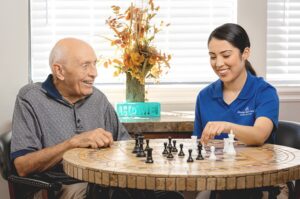
Among the myriad health challenges faced by seniors, osteoarthritis (also known as “wear and tear”) is one of the most prevalent and devastating conditions. Thankfully, reliable resources and support are available to help senior adults and caregivers manage the condition better.
One such resource is medicalwholesalesupplies.com, which offers a wide range of products and solutions for osteoarthritis management. They provide reliable support to seniors and caregivers in navigating the demands of osteoarthritis.
A key tool in the management of osteoarthritis is Synvisc, a viscosupplement relied upon by doctors. Synvisc, along with other advancements in medical care, plays a fundamental role in ensuring comfort and improved quality of life for our aging population.
Understanding the prevalence of osteoarthritis, one of the world’s major joint problems is crucial in developing effective treatment strategies. Additionally, recognizing how powerfully Synvisc can contribute to managing this condition can make a big difference for those affected by osteoarthritis.
Exploring the Impact of Osteoarthritis on Senior Health
Osteoarthritis (OA) ranks as one of the most prevalent chronic joint conditions worldwide. Here are some statistics from leading organizations that highlight the urgent need for a long-term solution to this problem. As per the World Health Organization, 70% of individuals aged 55 and above struggle with OA.
Another study published in 2021 by Mostafa Shaban from Cairo University focuses on the impact it has on seniors. His X-ray assessments showed the prevalence of OA in about 30% of individuals aged over 65. Global estimates from this study highlighted that roughly 9.6% of men and 18.0% of women over the age of 60 encounter symptomatic OA. Disturbingly, this research also emphasized that approximately 80% of the subjects experience challenges with their mobility, and 25% struggle to perform essential daily activities as a result of this condition. The progression of the “wear and tear” disease often leads to increased pain, stiffness, and reduced flexibility. To make things worse, constant chronic pain and physical restrictions often develop frustration and isolation due to the magnificent psychological impact it has on seniors.
The condition underscores the significant challenges individuals experience due to osteoarthritis and highlights the importance of proper care to improve their functional abilities and overall quality of life.
The Role of Synvisc in Alleviating The “Wear and Tear” Syndrome
Synvisc is a valuable solution for osteoarthritis, offering joint lubrication and pain relief. Unlike systemic medications, Synvisc minimizes the widespread side effects when injected directly into the joint.
In a study examining the demographics of individuals aged 40 and above with knee osteoarthritis (OA), Synvisc-One demonstrated superior performance compared to other medications. Over 26 weeks, Synvisc-One significantly reduced pain levels in participants. It showed excellent efficacy in lowering WOMAC A Pain Scores and delivered favorable outcomes in various assessments, including treatment duration and post-administration care. These findings suggest that Synvisc-One holds great promise as an alternative treatment for reducing knee pain in senior adults. It promises a less painful administration process, fewer side effects, and long-lasting effects with minimal post-treatment care requirements.
Optimizing Senior Health with Synvisc
In elderly care, combining Synvisc with regular exercises contributes to achieving optimal senior health. It means that while the injectable treatment improves the joint condition, physical movements and exercises complement the treatment and boost overall joint health.
- Jeffrey Katz, an esteemed faculty member specializing in medicine and orthopedic surgery at Harvard Medical School, says, “Regular exercise and movement can help people with osteoarthritis in many ways. Besides helping with pain management, it can improve patients’ level of function and may delay the need for a joint replacement.”
He also added that leading an active life can manage the symptoms of OA. He further stressed that “Exercise can’t help replace lost cartilage or necessarily slow its natural decline. However, it plays a supporting role — strengthening the bones and its surrounding muscles to protect the affected joints from excess stress so they can work better.”
- Katz suggests that affected senior adults should consult a physical therapist and assess their joint conditions to tailor a customized exercise regimen suitable for them. Each individual is different, and each one has a different threshold. Understanding their underlying health conditions will help the physical therapist churn out a plan that fits their requirements.
Comprehensive Approach to Elderly Osteoarthritis Care
The World Health Organization (WHO) is actively working to improve access to care for seniors with osteoarthritis. WHO’s Rehabilitation 2030 Initiative focuses on critical rehabilitation interventions, including assistive products to address osteoarthritis and other health conditions.
As the UN Decade of Healthy Ageing continues, there is a need for healthcare systems to adapt to the diverse needs of older adults. The Integrated Care for Older People (ICOPE) method prioritizes personalized health and social care, supporting physical and mental capacities affected by pain, focusing specifically on preventing locomotor decline.
These coordinated efforts support healthy aging and address the unique challenges faced by older individuals. They are complementary to treatments like Synvisc, which significantly improve the quality of life for those affected by osteoarthritis.








